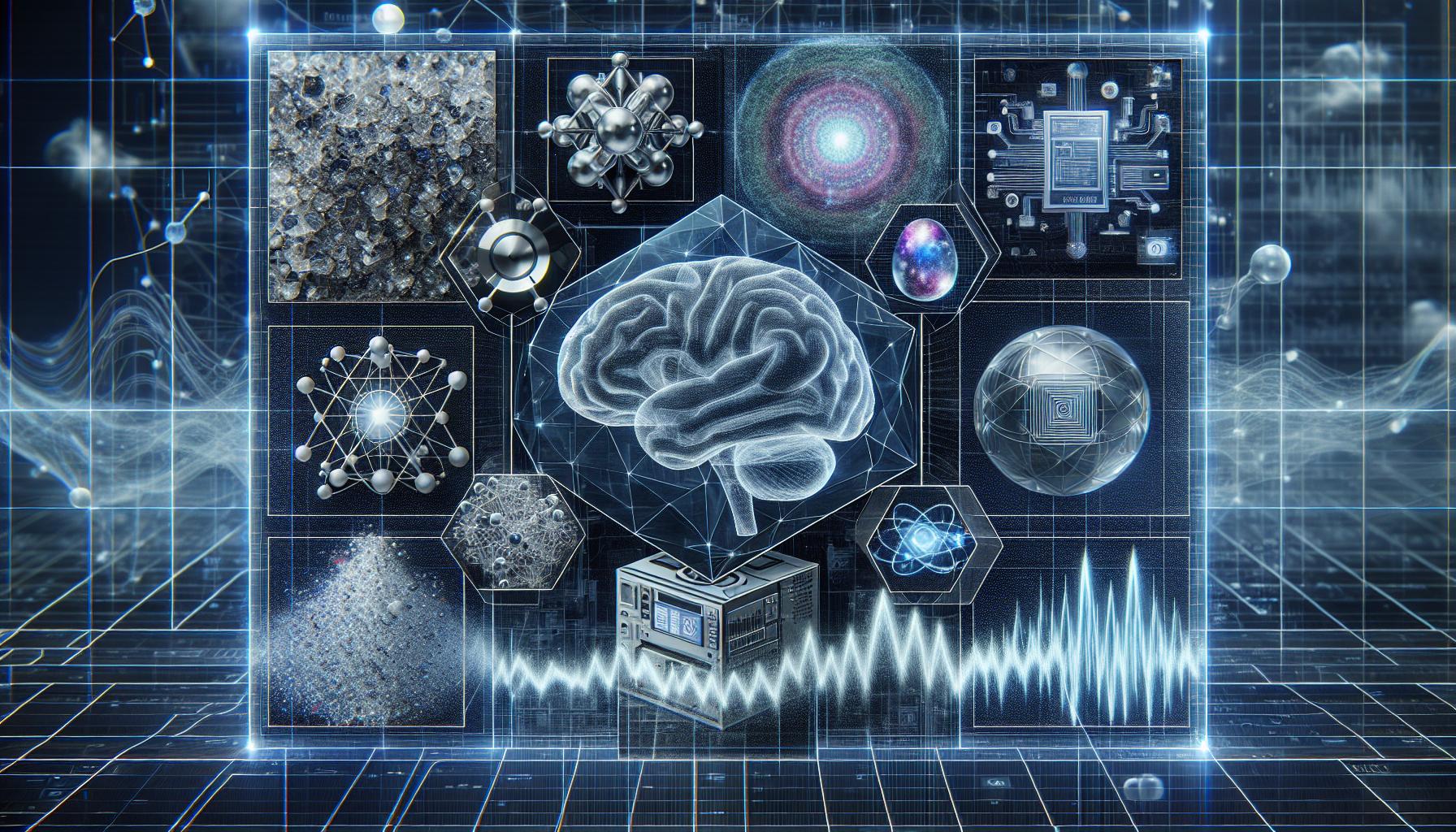Diving straight into the heart of mathematical mysteries, i^2, or the square of the imaginary unit ‘i’, is a concept that might seem daunting at first. But, understanding its significance is a game-changer in the area of complex numbers. This review aims to demystify i^2 and its pivotal role in expanding our comprehension of mathematical theories. Whether you’re a student grappling with algebra or a curious mind intrigued by the abstract, this exploration will shed light on why i^2 is not just a mere number, but a key that unlocks the door to a vast universe of mathematical possibilities.
Unveiling the Concept of i^2
When you investigate into the intricacies of complex numbers in mathematics, one term that often comes up is i, the imaginary unit. But, the true magic lies in understanding i^2, which is fundamentally the square of i. By definition, i is the square root of -1, so making i^2 = -1. This simple yet profound concept is a cornerstone in the area of complex numbers, offering a gateway to explore and solve equations that are otherwise impossible to tackle with real numbers alone.
The Significance of i^2 in Complex Algebra
The introduction of i^2 into algebra allows for the expansion of mathematical understanding and problem-solving capabilities. It’s not just a theoretical concept but a practical tool that has real-world applications in fields such as engineering, physics, and beyond. For students grappling with algebra, grasping the concept of i^2 is pivotal. It shifts the lens through which problems are viewed, introducing a new dimension of solutions.
- Enables calculation of roots of negative numbers
- Facilitates the understanding of quadratic equations with no real solutions
This fundamental insight into i^2 being equal to -1 helps demystify complex numbers, making them less ‘imaginary’ and more tangible and applicable. With i^2, you can navigate through equations that previously seemed insurmountable, opening doors to new methodologies and theories in mathematics.
Historical Significance of i^2

The concept of the imaginary unit ‘i’, where i^2 equals -1, dates back to the 16th century. This mathematical innovation paved the way for complex numbers, a cornerstone in modern mathematics and engineering. Initially, the idea of a square root of a negative number was met with scepticism. It defied the logic of the time, challenging mathematicians to expand their understanding of numbers.
Renaissance Breakthrough
It was in the work of Italian mathematician Gerolamo Cardano where i^2 first made its appearance, albeit implicitly, through his efforts to solve cubic equations. Later, Rafael Bombelli formalised the use of complex numbers, introducing a revolutionary way to approach and solve equations that were previously deemed unsolvable.
Impact on Mathematical Theories
The adoption of i^2 fundamentally changed mathematical analysis and theory development. Leonhard Euler, in the 18th century, made significant contributions by introducing Euler’s formula, which directly relates complex numbers to trigonometry. This relationship not only enhanced the understanding of mathematical functions but also laid the groundwork for advancements in physics and engineering.
Applications in Modern Physics
In the area of physics, i^2 has been instrumental in the development of quantum mechanics. Max Born, Werner Heisenberg, and Erwin Schrödinger, among others, used complex numbers to describe the state and behaviour of subatomic particles. This application underscores the importance of i^2 in translating abstract concepts into tangible, predictive tools in science.
The journey of i^2 from a mathematical curiosity to a fundamental component of complex numbers illustrates its undeniable impact on the progression of mathematical and scientific thought. Through centuries of scrutiny, refinement, and application, i^2 remains a key element in the exploration of the natural world.
Applications of i^2 in Mathematics

When you investigate into the area of mathematics, you’ll discover that i^2, the square of the imaginary unit i, has far-reaching applications that go beyond theoretical concepts. Its usage spans various mathematical fields, showcasing its versatility and importance.
Complex Number Calculations
One of the primary applications of i^2 is in simplifying calculations involving complex numbers. Since i^2 is defined as -1, you can easily convert complex expressions into more manageable forms, facilitating both basic and advanced operations. For example, when multiplying complex numbers or solving polynomial equations, knowing that i^2 = -1 streamlines the process.
Signal Processing
In the world of digital signal processing, i^2 plays a pivotal role. Engineers use complex numbers, including the properties of i^2, to perform Fast Fourier Transforms (FFT). FFTs are crucial for converting signals from the time domain to the frequency domain, enabling the efficient compression and manipulation of audio and visual data.
Quantum Mechanics
The field of quantum mechanics often employs complex numbers, with i^2 being a fundamental component. This application is evident in the Schrödinger equation, where complex numbers are used to describe the state of subatomic particles. The use of i^2 in this context allows scientists to make precise predictions about particle behavior, contributing to advancements in technology and our understanding of the universe.
Electrical Engineering
In electrical engineering, i^2 is instrumental in analysing alternating current (AC) circuits. By representing voltages and currents as complex numbers, engineers can simplify calculations related to AC power, impedance, and circuit analysis. This not only enhances the efficiency of designing electrical systems but also improves the safety and reliability of electrical infrastructure.
These examples illustrate just a few of the ways i^2 has been applied across different mathematical and scientific disciplines. Its ability to bridge abstract theory with practical application cements its status as a foundational element in the progression of modern mathematics and science.
Understanding the Mathematical Properties of i^2

i^2 plays a pivotal role in simplifying complex calculations across various scientific and engineering disciplines. When you’re delving into the area of complex numbers, understanding the value and properties of i^2 is crucial. Defined as -1, i^2 simplifies the arithmetic of complex numbers, making them more manageable.
The beauty of i^2 lies in its ability to transform square roots of negative numbers into real numbers. This feature not only broadens the scope of mathematical solutions but also facilitates easier calculations in fields requiring complex number operations. For instance, in electrical engineering, analysing alternating current (AC) circuits becomes more straightforward with i^2, as it allows for the analysis of circuit behaviour using real numbers rather than complex ones.
In quantum mechanics, i^2 is instrumental in representing the behaviour of subatomic particles. This field relies heavily on complex numbers to describe phenomena that cannot be explained by classical physics alone. Here, i^2’s role is indispensable in facilitating calculations that lead to a deeper understanding of the quantum area.
Besides, signal processing benefits greatly from the application of i^2 through Fast Fourier Transforms (FFT). FFT algorithms, which are integral to processing digital signals, rely on complex numbers, and so, i^2, to efficiently transform signals between time and frequency domains. This not only enhances the analysis of signals for communication technologies but also improves the processing speed, making real-time signal analysis feasible.
By harnessing the mathematical properties of i^2, various fields achieve greater precision and efficiency in their calculations and analyses. Its application in simplifying complex number calculations, alongside facilitating advancements in quantum mechanics, electrical engineering, and signal processing, underscores the versatility and foundational importance of i^2 in bridging theoretical concepts with practical, real-world solutions.
Exploring the Future Implications of i^2

The ubiquitous i^2 = -1 equation, foundational in mathematics and engineering, heralds exciting future advancements across diverse fields. Its unique property not only simplifies complex calculations but also propels innovation in technology and scientific research.
Quantum Computing
With i^2‘s pivotal role in quantum mechanics, its application in quantum computing is groundbreaking. Quantum computers utilise the principles of quantum mechanics to perform complex computations at unprecedented speeds. i^2 enables the representation of qubits, the basic units of quantum information, facilitating operations that traditional bits cannot achieve. This leap in computation power promises to revolutionise industries by making tasks like drug discovery and financial modelling exponentially faster and more precise.
Artificial Intelligence
Artificial Intelligence (AI) stands to benefit immensely from advancements in computation facilitated by i^2. With AI algorithms becoming increasingly sophisticated, the need for high-speed, complex calculations grows. i^2 allows for the efficient processing of neural networks and machine learning algorithms, ensuring AI systems can learn and evolve faster. This acceleration in processing capabilities will enable AI to solve more complex problems, enhance decision-making, and predict outcomes with greater accuracy.
Advanced Signal Processing
In the area of signal processing, i^2 plays a critical role through Fast Fourier Transforms (FFT). These transforms are crucial for converting signals from time to frequency domain, allowing for more effective data analysis. As data generation and consumption continue to grow, efficient signal processing becomes essential. Advancements in FFT algorithms, underpinned by i^2, will lead to improved data compression techniques, enhanced image and sound quality, and faster internet speeds.
Material Science
The exploration of new materials with exotic properties often requires the analysis and simulation of complex quantum behaviours. i^2 is instrumental in developing algorithms that simulate the quantum mechanics of materials at an atomic level. This capability allows for the prediction and design of materials with specific properties for use in technology, medicine, and environmental applications. The future may see the development of superconductors that operate at room temperature or materials that can efficiently convert sunlight into energy, revolutionising multiple industries.
i^2‘s integral role in these fields underscores its potential to drive forward significant scientific and technological advancements.
Conclusion
Delving into the world of i^2 reveals its undeniable significance in pushing the boundaries of innovation and discovery. You’ve seen how it’s not just a mathematical curiosity but a powerhouse behind the scenes in quantum computing, artificial intelligence, signal processing, and material science. Its role in enhancing computational speed, processing capabilities, and in the development of new materials underscores its importance. As you move forward, remember, i^2 is more than a concept; it’s a key player in shaping the future of technology and science. Embrace its potential and consider how it might influence your field or area of interest.



